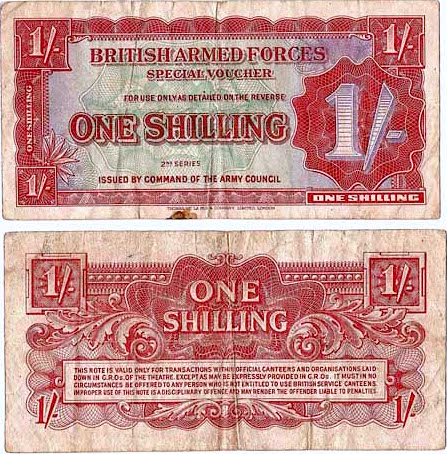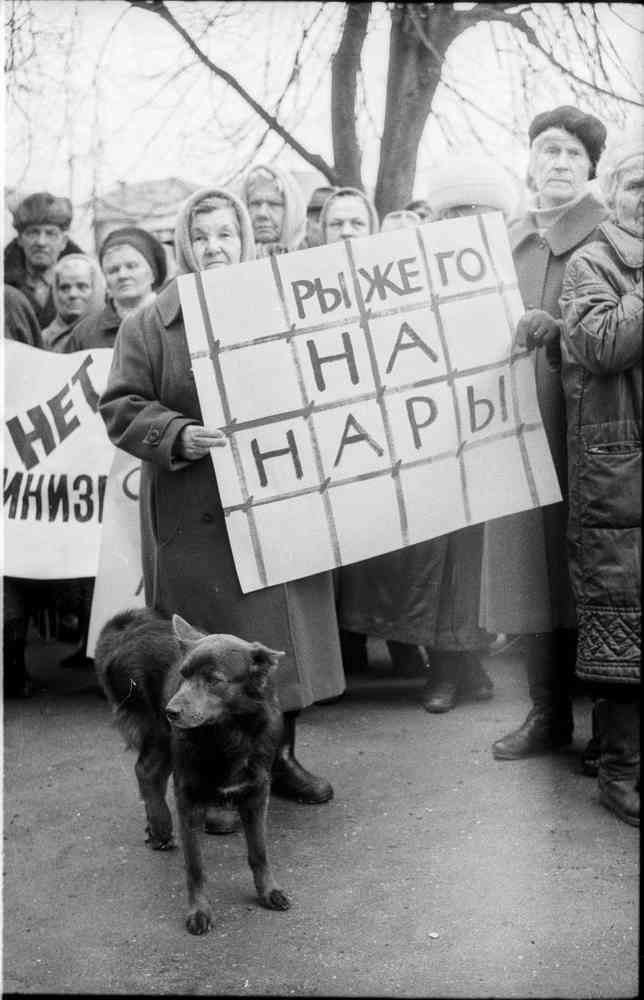|
Privatization Voucher
Voucher privatization (, ) is a privatization method where citizens are given or can inexpensively buy a book of vouchers that represent potential shares in any state-owned company. Voucher privatization has mainly been used in the early to mid-1990s in the transition economies of Central and Eastern Europe, including Bulgaria, Slovenia, Czechoslovakia, Hungary, Estonia, Latvia and Lithuania. See also *History of post-Soviet Russia * Viktor Kožený *Privatization in Russia Privatization in Russia describes the series of post-Soviet reforms that resulted in large-scale privatization of Russia's state-owned assets, particularly in the industrial, energy, and financial sectors. Most privatization took place in the e ... External links * David Ellerman"''Lessons From East Europe’s Voucher Privatization''" The Capital Ownership Group (virtual think tank). Payment systems Economic history of the Soviet Union Privatization {{econ-stub ... [...More Info...] [...Related Items...] OR: [Wikipedia] [Google] [Baidu] |
Voucher (1992)
A voucher is a bond of the redeemable transaction type which is worth a certain monetary value and which may be spent only for specific reasons or on specific goods. Examples include housing, travel, and food vouchers. The term voucher is also a synonym for receipt and is often used to refer to receipts used as evidence of, for example, the declaration that a service has been performed or that an expenditure has been made. Voucher is a tourist guide for using services with a guarantee of payment by the agency. The term is also commonly used for school vouchers, which are somewhat different. In tourism Vouchers are used in the tourism sector primarily as proof of a named customer's right to take a service at a specific time and place. Service providers collect them to return to the tour operator or travel agent that has sent that customer, to prove they have given the service. So, the life of a voucher is as below: # Customer receives vouchers from tour operator or travel agent ... [...More Info...] [...Related Items...] OR: [Wikipedia] [Google] [Baidu] |
Privatization
Privatization (rendered privatisation in British English) can mean several different things, most commonly referring to moving something from the public sector into the private sector. It is also sometimes used as a synonym for deregulation when a heavily regulated private company or industry becomes less regulated. Government functions and services may also be privatised (which may also be known as "franchising" or "out-sourcing"); in this case, private entities are tasked with the implementation of government programs or performance of government services that had previously been the purview of state-run agencies. Some examples include revenue collection, law enforcement, water supply, and prison management. Another definition is that privatization is the sale of a state-owned enterprise or municipally owned corporation to private investors; in this case shares may be traded in the public market for the first time, or for the first time since an enterprise's previous natio ... [...More Info...] [...Related Items...] OR: [Wikipedia] [Google] [Baidu] |
Voucher
A voucher is a bond of the redeemable transaction type which is worth a certain money, monetary value and which may be spent only for specific reasons or on specific goods. Examples include house, housing, travel, and food vouchers. The term voucher is also a synonym for receipt and is often used to refer to receipts used as evidence (law), evidence of, for example, the declaration that a service has been performed or that an expenditure has been made. Voucher is a tourist guide for using services with a guarantee of payment by the agency. The term is also commonly used for school vouchers, which are somewhat different. In tourism Vouchers are used in the tourism sector primarily as proof of a named customer's right to take a service at a specific time and place. Service providers collect them to return to the tour operator or travel agent that has sent that customer, to prove they have given the service. So, the life of a voucher is as below: # Customer receives vouchers from ... [...More Info...] [...Related Items...] OR: [Wikipedia] [Google] [Baidu] |
State-owned Company
A state-owned enterprise (SOE) is a business entity created or owned by a national or local government, either through an executive order or legislation. SOEs aim to generate profit for the government, prevent private sector monopolies, provide goods at lower prices, implement government policies, or serve remote areas where private businesses are scarce. The government typically holds full or majority ownership and oversees operations. SOEs have a distinct legal structure, with financial and developmental goals, like making services more accessible while earning profit (such as a state railway). They can be considered as government-affiliated entities designed to meet commercial and state capitalist objectives. Terminology The terminology around the term state-owned enterprise is murky. All three words in the term are challenged and subject to interpretation. First, it is debatable what the term "state" implies (e.g., it is unclear whether municipally owned corporations and ent ... [...More Info...] [...Related Items...] OR: [Wikipedia] [Google] [Baidu] |
Transition Economy
A transition economy or transitional economy is an economy which is changing from a centrally planned economy to a market economy. Transition economies undergo a set of structural transformations intended to develop market-based institutions. These include economic liberalization, where prices are set by market forces rather than by a central planning organization. In addition to this, trade barriers are removed, there is a push to privatize state-owned enterprises and resources, state and collectively run enterprises are restructured as businesses, and a financial sector is created to facilitate macroeconomic stabilization and the movement of private capital. The process has been applied in China, the former Soviet Union and Eastern bloc countries of Europe and some Third world countries, and detailed work has been undertaken on its economic and social effects. The transition process is usually characterized by the changing and creating of institutions, particularly private ... [...More Info...] [...Related Items...] OR: [Wikipedia] [Google] [Baidu] |
Central Europe
Central Europe is a geographical region of Europe between Eastern Europe, Eastern, Southern Europe, Southern, Western Europe, Western and Northern Europe, Northern Europe. Central Europe is known for its cultural diversity; however, countries in this region also share some historical and cultural similarities. The region is variously defined, but it’s minimum definition could be considered of consisting of Austria, Bosnia and Herzegovina, Croatia, the Czech Republic, eastern France, Germany, Liechtenstein, Luxembourg, Poland, Slovakia, Slovenia and Switzerland. But also the Baltic States, the Alsace in north-east France, and South Tyrol, northern Belluno , and Friuli-Venezia Giulia in north-east Italy are culturally usually considered to be part of Central Europe. From the early 16th century until the early 18th century, parts of Croatia and Hungary were ruled by the Ottoman Empire. During the 17th century, the empire also occupied southern parts of present-day Slovakia. During ... [...More Info...] [...Related Items...] OR: [Wikipedia] [Google] [Baidu] |
Eastern Europe
Eastern Europe is a subregion of the Europe, European continent. As a largely ambiguous term, it has a wide range of geopolitical, geographical, ethnic, cultural and socio-economic connotations. Its eastern boundary is marked by the Ural Mountains, and its western boundary is defined in various ways. Narrow definitions, in which Central Europe, Central and Southeast Europe are counted as separate regions, include Belarus, Russia and Ukraine. In contrast, broader definitions include Moldova and Romania, but also some or all of the Balkans, the Baltic states, the Caucasus, and the Visegrád Group, Visegrád group. The region represents a significant part of Culture of Europe, European culture; the main socio-cultural characteristics of Eastern Europe have historically largely been defined by the traditions of the Slavs, as well as by the influence of Eastern Christianity as it developed through the Byzantine Empire, Eastern Roman Empire and the Ottoman Empire. Another definition was ... [...More Info...] [...Related Items...] OR: [Wikipedia] [Google] [Baidu] |
History Of Post-Soviet Russia
The modern history of Russia began with the Russian SFSR, a constituent republic of the Soviet Union, gaining more political and economical autonomy amidst the imminent dissolution of the USSR during 1988–1991, proclaiming its sovereignty inside the Union in June 1990, and electing its first President Boris Yeltsin a year later. The Russian Soviet Federative Socialist Republic was the largest Soviet Socialist Republic, but it had no significant independence before, being the only Soviet republic to not have its own branch of the Communist Party. The RSFSR was the largest of the fifteen republics that made up the USSR, accounting for over 60% of its GDP and over 50% of its population. Russians also dominated the Soviet military and the Communist Party. As such, the Russian Federation was widely accepted as the USSR's successor state in diplomatic affairs and it assumed the USSR's permanent membership and veto in the UN Security Council (see Russia and the United Nations) ... [...More Info...] [...Related Items...] OR: [Wikipedia] [Google] [Baidu] |
Viktor Kožený
Viktor Kožený (born 28 June 1963 in Prague, Czechoslovakia) is a fugitive financier. According to Bloomberg News, he graduated from Harvard in 1989 with a bachelor's degree in economics. However, he cannot be located in the Harvard Alumni directory as of 2015. Viktor Kožený is an Irish citizen imprisoned in the Bahamas in 2005 but released in 2007. He currently lives in a gated community in the Bahamas. Efforts to bring him to justice stem from both the Czech Republic and the USA. An international warrant has been issued for Kožený, who in the early 1990s ran one of the great scams of the post-Communist era. By the media he is often called "the pirate of Prague". He was imprisoned after a US extradition request, but that was refused by Bahaman authorities in October 2007. In February 2008 a court case against him and his partner Boris Vostrý started at Prague Municipal Court. Kožený has remained in the Bahamas and has not been attending the trial. He asked the prosecu ... [...More Info...] [...Related Items...] OR: [Wikipedia] [Google] [Baidu] |
Privatization In Russia
Privatization in Russia describes the series of post-Soviet reforms that resulted in large-scale privatization of Russia's state-owned assets, particularly in the industrial, energy, and financial sectors. Most privatization took place in the early and mid-1990s under Boris Yeltsin, who assumed the presidency following the dissolution of the Soviet Union. Private ownership of enterprises and property had essentially remained illegal throughout the Soviet era, with Soviet Communism emphasizing national control over all means of production but human labor. Under the Soviet Union, the number of state enterprises was estimated at 45,000. Privatization facilitated the transfer of significant wealth to a relatively small group of business oligarchs and New Russians, particularly natural gas and oil executives. This economic transition has been described as ''katastroika'', which is a combination of ''catastrophe'' and the term ''perestroika'', and as "the most cataclysmic peaceti ... [...More Info...] [...Related Items...] OR: [Wikipedia] [Google] [Baidu] |
Payment Systems
A payment system is any system used to settle financial transactions through the transfer of monetary value. This includes the institutions, payment instruments such as payment cards, people, rules, procedures, standards, and technologies that make its exchange possible.Biago Bossone and Massimo Cirasino, "The Oversight of the Payment Systems: A Framework for the Development and Governance of Payment Systems in Emerging Economies"The World Bank, July 2001, p.7 A payment system is an operational network which links bank accounts and provides for monetary exchange using bank deposits. Some payment systems also include credit mechanisms, which are essentially a different aspect of payment. Payment systems are used in lieu of tendering cash in domestic and international transactions. This consists of a major service provided by banks and other financial institutions. Traditional payment systems include negotiable instruments such as drafts (e.g., cheques) and documentary credits such ... [...More Info...] [...Related Items...] OR: [Wikipedia] [Google] [Baidu] |


